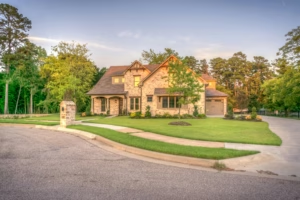Managing a homeowner association (HOA) can feel like juggling dozens of plates while walking a tightrope. From maintaining common areas and enforcing community guidelines to handling resident complaints and managing finances, HOA management requires wearing many hats. But here’s the good news: with the right strategies in place, you can create a harmonious community while keeping your HOA board’s stress levels in check.
As someone who’s worked closely with numerous HOA boards and property managers, I’ve seen firsthand what makes the difference between chaotic communities and well-oiled machines.
Let’s dive into seven proven strategies that can transform your homeowner association management experience.
1. Embrace Technology for Streamlined Operations
Gone are the days of drowning in paperwork and playing phone tag with residents. Modern HOA management software has revolutionized how associations handle their daily operations. These platforms can help you:
- Process monthly dues automatically
- Track maintenance requests in real-time
- Store important documents securely
- Facilitate community communications
- Schedule amenity usage
- Generate financial reports instantly
By implementing a comprehensive management system, you’ll save countless hours and reduce the likelihood of human error. Plus, residents appreciate the convenience of paying dues online and submitting maintenance requests from their smartphones.
2. Develop Clear Communication Channels
Nothing breeds community discord faster than poor communication. Establishing multiple channels for resident engagement ensures everyone stays informed and feels heard. Consider implementing:
- Regularly emailed maintenance schedules, and important announcements
- A user-friendly community website or portal where residents can access documents, forms, and community updates
- Social media groups for informal community engagement
- Monthly board meetings with open forums for resident feedback
- Emergency notification systems for urgent updates
Remember to maintain consistency in your communication style and frequency. When residents know what to expect and where to find information, they’re more likely to stay engaged and compliant with community guidelines.
3. Create and Maintain Detailed Documentation
Thorough documentation is your best friend in homeowner association management. It protects the association and provides clear guidelines for decision-making. Essential documents should include:
- A comprehensive policy manual that outlines all rules and regulations
- Detailed maintenance schedules and procedures
- Financial records and budgets
- Meeting minutes and board decisions
- Violation notices and enforcement procedures Insurance policies and claims history
Store these documents both digitally and physically, ensuring they’re easily accessible to board members and relevant stakeholders. Regular reviews and updates keep your documentation current and effective.
4. Implement a Proactive Maintenance Program
Prevention is always cheaper than cure. A proactive maintenance program helps you avoid costly emergency repairs and keeps your community looking its best. Here’s how to build one:
- Conduct regular property inspections to identify potential issues early
- Create seasonal maintenance checklists for common areas
- Develop relationships with reliable contractors for routine work
- Budget for both regular maintenance and capital improvements
- Keep detailed records of all maintenance activities and costs
- Schedule preventive maintenance during off-peak seasons
This approach not only saves money in the long run but also helps maintain property values and resident satisfaction.
5. Foster a Strong Community Spirit
A well-managed HOA isn’t just about rules and maintenance—it’s about creating a community where people want to live. Building community spirit can significantly reduce conflicts and increase voluntary compliance with rules. Try these community-building initiatives:
- Organize regular social events like block parties or holiday celebrations
- Create committees that give residents a voice in community decisions
- Recognize and celebrate resident achievements or contributions
- Support local charitable initiatives
- Host educational workshops on relevant topics like gardening or home maintenance
- Establish welcome programs for new residents
When people feel connected to their community, they’re more likely to take pride in it and work together to maintain high standards.
6. Develop Fair and Consistent Enforcement Procedures
Rule enforcement is often the most challenging aspect of homeowner association management. The key is to be fair, consistent, and transparent. Consider this approach:
- Start with friendly reminders rather than immediate violations
- Use a standardized process for all enforcement actions
- Document everything with photos and written records
- Provide clear explanations of violations and how to remedy them
- Offer reasonable timeframes for compliance
- Have an appeals process in place
Remember that the goal is compliance, not punishment. Many violations can be resolved through education and clear communication rather than strict enforcement.
7. Master Financial Management
Sound financial management is crucial for any HOA’s long-term success. Here’s how to keep your association’s finances healthy:
- Develop detailed annual budgets with input from all stakeholders
- Maintain adequate reserve funds for major repairs and replacements
- Review and adjust dues regularly to meet community needs
- Monitor expenses carefully and look for cost-saving opportunities
- Conduct regular financial audits
- Be transparent about financial decisions and reports
Working with professionals who specialize in homeowner association management like Ironhorse Management to ensure you’re making the best decisions for your community’s future.
Bringing It All Together
Successful HOA management requires a balanced approach that combines efficient operations, clear communication, and strong community building. While implementing these strategies may take time and effort, the results are worth it: a thriving community where residents are happy to live and property values continue to appreciate.
Remember that every community is unique, so don’t be afraid to adapt these strategies to fit your specific needs. Start with the areas that need the most improvement and gradually work your way through the rest. With patience and persistence, you can create a stress-free management experience that benefits everyone in your community.
The key is to stay organized, maintain open lines of communication, and always keep the community’s best interests at heart. By following these proven strategies, you’ll be well on your way to creating a harmonious and well-managed homeowner association that residents are proud to call home.
New to your HOA board? Let us help get you started on a more stress-free journey with our Complete Guide to HOA Management.





